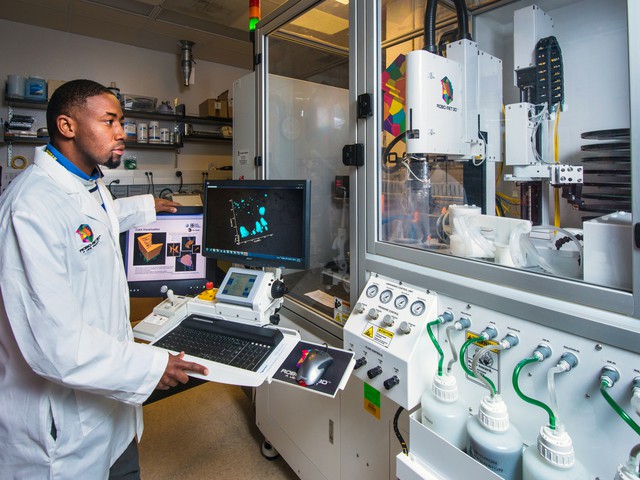The engineering profession continues to evolve in 2025, offering some of the most lucrative career opportunities in the United States. As industries expand with new technologies, demand for specialized skills has created a clear list of the highest paying engineering jobs that attract both seasoned professionals and fresh graduates. From advanced fields like petroleum and computer hardware engineering to rapidly growing sectors such as aerospace, biomedical, and software engineering, these roles not only provide excellent salaries but also long-term job stability and growth potential.
In the United States, engineering careers are consistently ranked among the best paying jobs across all industries. Professionals with strong technical expertise, problem solving ability, and innovative thinking are highly sought after by leading companies and government agencies. Fields such as civil engineering, electrical engineering, and mechanical engineering remain essential, while newer areas like robotics engineering, data engineering, and environmental engineering continue to rise in prominence.
The highest paying engineering jobs in 2025 combine strong compensation with opportunities to shape the future of technology, infrastructure, healthcare, and energy. By exploring this ranking, you gain insights into salary expectations, career outlooks, and the industries driving demand for skilled engineers. This guide highlights the top ten engineering careers in the USA for 2025, ensuring readers understand where the most rewarding opportunities lie in today’s competitive job market.
Top Ten Highest Paying Engineering Jobs In The USA 2025
10. Materials Engineer

Materials engineers are responsible for developing and testing substances that support innovations across multiple industries. They work with metals, ceramics, composites, and polymers to create materials that are lighter, stronger, and more durable. In 2025, their role is especially vital in aerospace, energy, and electronics, where advanced materials are required for performance and safety. These engineers study the microscopic structures of substances to predict how they will behave under stress, temperature, or chemical exposure.
The job also involves failure analysis and collaborating with product designers to ensure that chosen materials meet industry standards. Many materials engineers specialize in additive manufacturing, nanotechnology, or battery development, areas that are increasingly valuable as the demand for renewable energy and electric vehicles grows. Salaries for professionals in this field remain strong, especially for those with advanced degrees or those working in research and development. Career paths often expand into leadership roles in manufacturing, energy, or technology companies.
9. Industrial Engineer

Industrial engineers streamline processes to improve productivity and reduce waste across manufacturing plants, logistics companies, and service industries. They design workflows, optimize supply chains, and ensure efficient use of time and resources. In 2025, with automation and robotics becoming widespread in factories and distribution networks, their expertise is more critical than ever. Industrial engineers apply lean manufacturing principles, Six Sigma methodologies, and operations research to identify bottlenecks and propose solutions.
Their skills are used in healthcare systems, transportation networks, and even government agencies seeking efficiency. The ability to blend technical engineering knowledge with managerial insight allows them to progress into senior roles such as operations manager or process director. The growing importance of digital twins and data-driven optimization adds new responsibilities, making this career path dynamic and rewarding. Compensation is competitive, and professionals with strong data analysis and project management experience are positioned for significant salary growth.
8. Aerospace Engineer

Aerospace engineers design and test aircraft, spacecraft, satellites, and defense systems. Their work combines aerodynamics, propulsion, structural design, and avionics to create safe and efficient vehicles for air and space travel. In 2025, opportunities are expanding as private space exploration companies, defense organizations, and airlines continue to invest in advanced projects. These engineers use simulation tools to model flight performance and work closely with regulatory agencies to certify aircraft and spacecraft.
Many specialize in areas such as propulsion systems, unmanned aerial vehicles, or satellite technologies, which offer high compensation due to their complexity. Career advancement often leads to positions in project leadership, systems integration, or government research programs. Aerospace engineers also contribute to cutting-edge technologies like electric aircraft and reusable rockets, ensuring that their expertise remains valuable in the evolving transportation and defense sectors.
7. Chemical Engineer

Chemical engineers apply chemistry, physics, and mathematics to convert raw materials into useful products such as fuels, pharmaceuticals, food additives, and polymers. They design processes that scale laboratory innovations to industrial production while maintaining safety and efficiency. In 2025, their role is increasingly connected to sustainability as industries seek eco-friendly processes and renewable energy solutions. Chemical engineers manage large-scale equipment, develop catalysts, and optimize reaction pathways to improve yield and reduce environmental impact.
Many find opportunities in emerging fields like green hydrogen, carbon capture, and advanced battery technologies. Their work also extends to healthcare, where chemical engineers play a part in drug development and vaccine production. Compensation remains strong, particularly for those who specialize in complex processes or work in highly regulated industries. Senior professionals often progress to plant management or research and development leadership roles.
6. Nuclear Engineer

Nuclear engineers design and maintain the systems that harness nuclear energy for power generation, medical treatments, and industrial applications. Their expertise covers reactor physics, radiation safety, and thermal systems. In 2025, small modular reactors and advanced reactor concepts are creating renewed interest in this profession as countries look for sustainable energy alternatives. Nuclear engineers conduct safety assessments, manage radioactive materials, and ensure compliance with strict regulations. They often collaborate with government agencies, power utilities, and research institutions.
Many are also involved in the development of nuclear medicine technologies that aid in diagnosis and cancer treatment. The technical demands and safety responsibilities of this field contribute to its high compensation. Career paths include roles in operations, design engineering, safety analysis, and policy advisory positions. Experienced professionals are well positioned for leadership and consulting opportunities in both energy and healthcare sectors.
5. Electrical Engineer

Electrical engineers design and implement systems that deliver power and control devices used in everyday life. Their work spans small circuits in electronics to large-scale power grids. In 2025, they play a central role in the development of renewable energy systems, electric vehicles, and smart grid technologies. Electrical engineers specialize in areas such as embedded systems, telecommunications, robotics, and power distribution. They design prototypes, test equipment, and troubleshoot performance issues across a wide range of industries.
Advanced skills in signal processing, control theory, and integrated circuit design are highly valued. The career offers opportunities in both traditional energy utilities and cutting-edge sectors like aerospace and information technology. Compensation levels are consistently strong, and senior engineers often move into project management or executive positions. With technology expanding at a rapid pace, the demand for electrical engineering expertise continues to remain high.
4. Data Engineer

Data engineers build and maintain the systems that allow organizations to handle massive volumes of data effectively. Their work enables accurate analysis, forecasting, and decision making across industries such as healthcare, finance, retail, and technology. In 2025, as companies continue to rely on artificial intelligence and big data analytics, data engineers are vital for setting up pipelines that ensure clean and reliable data flows.
Responsibilities include building data warehouses, managing cloud architectures, and designing frameworks for real-time analytics. Proficiency in programming, distributed systems, and database management is essential. Data engineers often collaborate with data scientists and software developers to optimize infrastructure and improve scalability. Senior professionals may lead architecture design or manage engineering teams responsible for enterprise-wide systems. Compensation reflects the critical nature of their work, with highly experienced engineers receiving some of the most competitive packages in the field.
3. Software Engineer

Software engineers create the programs and systems that drive modern technology. Their work covers application development, operating systems, cloud platforms, artificial intelligence, and cybersecurity. In 2025, software engineers are employed in nearly every industry, making it one of the most versatile and rewarding careers. Typical tasks include designing system architectures, writing code, testing, and maintaining applications that support business or consumer needs.
Specialization in machine learning, distributed systems, or security can lead to higher earnings due to the complexity of these fields. Career progression often includes roles such as senior developer, architect, or engineering manager, where responsibilities expand to include leadership and strategy. With the continuous expansion of digital transformation and AI applications, software engineers remain at the forefront of technological progress. Their compensation reflects both the demand for talent and the impact of their contributions to innovation and productivity.
2. Computer Hardware Engineer

Computer hardware engineers design the physical components of computers and related devices. They work on processors, circuit boards, memory systems, and embedded devices that power everything from smartphones to supercomputers. In 2025, hardware engineers are in demand as industries pursue high-performance computing, robotics, and advanced semiconductor technologies. Their tasks include schematic design, prototype testing, and system integration, ensuring that hardware functions efficiently with software.
Engineers with expertise in chip design, FPGA development, or high-speed circuits are particularly valued. The career offers opportunities in major technology companies, defense contractors, and research labs. Compensation is strong, reflecting the specialized knowledge and long development cycles required in hardware engineering. Senior roles often involve leading design teams or working on cutting-edge projects where precision and innovation are critical.
1. Petroleum Engineer

Petroleum engineers design and implement methods to extract oil and natural gas from reservoirs while maximizing efficiency and safety. Their work involves reservoir modeling, drilling techniques, production optimization, and project management. In 2025, despite the global push for renewable energy, petroleum engineers remain among the highest paid professionals due to the complexity and scale of energy operations. They often work in major oilfields, offshore rigs, and energy company headquarters.
Responsibilities include analyzing geological data, selecting equipment, and monitoring production performance. Advanced skills in simulation software, geomechanics, and fluid flow help professionals stand out in this field. Career growth often leads to senior technical positions, project leadership, or consulting roles that further increase compensation. The combination of technical expertise and the economic importance of energy resources ensures petroleum engineering’s position at the top of the list of high-paying engineering careers in the United States.

